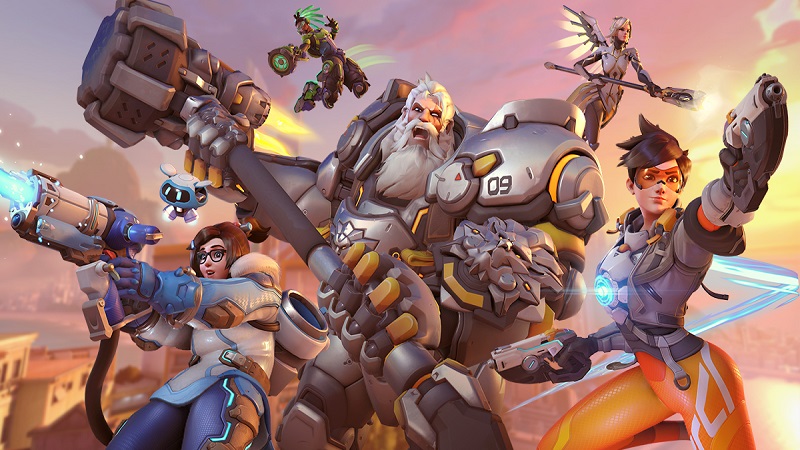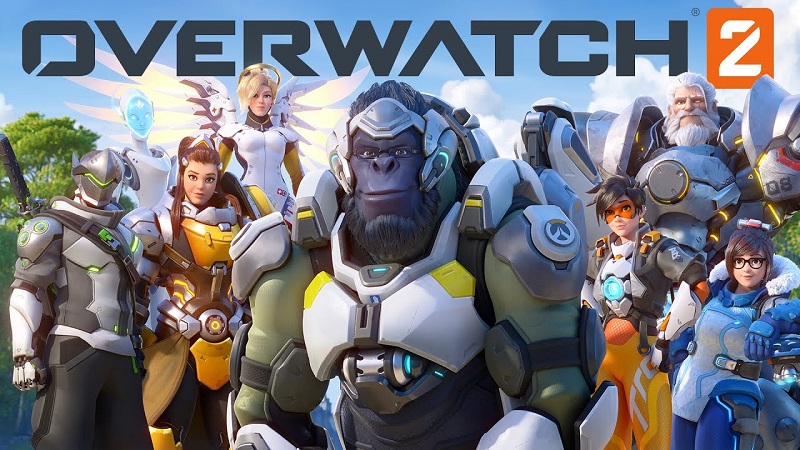Popular hero shooter Overwatch was a smash hit when it came out. Gorgeous art, fun gameplay, regular updates and of course, publishing behemoth Activision-Blizzard saw to it that the game found immediate success, with record-braking numbers of players and accounts made. How come then, that just a few years later so many people are wondering if Overwatch is dying?
The esports-launch did similarly well to the game – and then, things started to slow down. This is normal, but the Overwatch League definitely went through more struggles than most young esports do. It was plagued with scandals of toxicity, racism, sexism, player mistreatment, and so on. All this contributed to a pretty quick talent drain – as did the sometimes questionable adjustments Blizzard made to the Overwatch esport, such as bringing back the hated Hero Pools for events in summer 2021.
The death of a giant?
2020 and 2021 weren’t good years for Overwatch, that’s for sure. A ton of players retired or quit to pursue other games – leading the charge here was Valorant, which saw a huge number of Overwatch players join. Of course, the Overwatch player count also went down because of the pandemic – some League teams dismissed or released entire rosters in order to, for example, allow them to go home to their families in times of uncertainty. While that’s quite touching, it obviously didn’t help the esport any. Couples with the end-of-season slaughter that saw teams not renewing contracts left right and centre, people were left scratching their heads – why were OWL teams suddenly firing half their talent or more?

Indeed, a lot of spaces had to be filled with new players, and a lot of them moved up from the Contenders sections around the world (such as Contenders China). Whether these changes were to the overall betterment of the League or not remains to be seen… however it does show that Overwatch isn’t dying quite yet. After all, if the publisher had lost faith in the game, they wouldn’t still support the multitude of games, competitions and events both online and offline that are planned this upcoming year.
Changing for the future
Another factor of uncertainty is the upcoming release of Overwatch 2. The new and improved game is supposed to change the game, metaphorically speaking – a better version of what Overwatch is now. At least in theory – after all, the game isn’t out yet. It’s release will definitely have a big impact on whether or not Overwatch is dying.
So will future updates. Overwatch devs haven’t always gotten it right the first (or second or third) try, so future meta changes, nerfs, buffs and of course new heroes will continue to affect Overwatch player numbers.
For betting fans, the issue is a little less obvious – Overwatch betting will continue to go strong for as long as the Overwatch League will officially run… and that at least, will be for some time to come. Even with the severe roster changes that shook up much of the League in 2020 and early 2021, the OWL is going strong, with regular changes and updates happening to the events as they unfold.
Clearly Blizzard doesn’t think that Overwatch is dying – and with how rigorously they shut down Heroes of the Storm’s esports side, there’s no doubt they’d be the first to know and do something about it. In fact it seems that the company has enough faith to continue supporting the game.

To stream or not to stream?
Despite this it’s undeniable that Overwatch’s hours watched and streamed on Twitch have tanked considerably. This has been an ongoing trend for some months, and it’s easily explained by the emergence of contenders like Valorant. Overwatch has never been the biggest esport on Twitch (a title held firmly by League of Legends), so even with a drop in viewership, Overwatch is far from dead.
There are also plenty of people watching streams on YouTube – especially after Blizzard signed a broadcasting deal with YouTube in January of 2020, and thus official matches and esports events hosted by the company would be streamed exclusively on YouTube. In fact, such exclusivity deals aren’t uncommon, but they can still visibly hurt the viewership numbers on the affected platforms – yet this is almost entirely separate from the Overwatch player count.
If nothing else, consistent queue times show that while there are fluctuations in player numbers, the overall level has stayed relatively consistent over time. Harsh or steady drops would be a good indicator that the game was dying, but neither can be reliably observed in the game – even if the odd queue takes longer than usual. As a counterpoint, a lot of OWL pros have been leaving the game either for retirement or to pursue other games, but there has been no shortage of talent to move and join the ranks.
This fresh batch of players will now get a chance to prove themselves in what was previously an incredibly difficult pro scene to enter due its strongly limited number of teams and available positions. What that means for the future of Overwatch remains to be seen!








